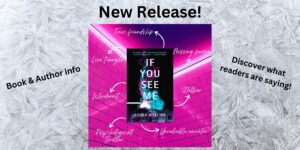You write exceptionally accurate historical novels, due in part to your interest and background in scholarly research into the past. Do you usually start from having an idea for a story, then locate the era? Or do you want to write in a specific time period, then find the story? (Or do they arrive together?) Tell us a little about your process for determining the right historical “place” for your work.
I usually have a historical event in mind, and then I figure out how to create a story using those events. I’ve written a number of books about the Royal Navy during the Napoleonic Wars, and then to subdivide that further, about surgeons in the Royal Navy. Like all good historical fiction novelists, I never want to waste all that painstaking research by only writing one book on the subject. I have a fine library on the Royal Navy and on surgical practices of the late 18th, early 19th centuries. I’ll by darned use that research several times. I also have a highly competitive nature, one that challenges me to tease out historical facts from obscure events and make them interesting.
It’s certainly my natural interest in a topic that fuels my story ideas. My Spanish Brand series has come out of a real fondness for Southwest border history that I can trace back to my undergraduate college years. In fact, I came across the idea of writing about a juez de campo (brand inspector) from a footnote – and a cryptic one at that – in a textbook. Then the writer in me immediately started thinking of where would be the most dangerous place in all of North America for a brand inspector with a ranch of his own to live. The answer of course, was Comanchería, that area where the Comanches ruled in New Mexico and West Texas for 250+ years. So then there must be Comanches, and so on, and that is how a story begins.
You have held an array of different jobs, from professor to park ranger. How has your work life informed and impacted your writing life?
I suspect my life as a writer has always been tied in with my employment. Working as a ranger at some interesting historic sites has deepened my love for and interest in the tumultuous history of our nation. I learned to treat history with great respect, and present it in such a way that visitors will leave the site with a deeper appreciation of their own. That’s all I try to do when I write. Everything I do, almost down to grocery lists (well maybe not), impacts the writerly me. Historians are trained to be observers; so should novelists be. An understanding of human nature is essential to be a good historian and a good novelist. Working as a journalist taught me to avoid purple prose and strive for simplicity. Contract research honed some skills where I still need work. Medical writing for a hospital and a hospice made me a danger to myself!
You have been published through different publishers, and have published a remarkable 34 novels! How has your experience differed from publisher to publisher? What advice do you have for new authors starting out as they look for a home for their work?
Hard questions! Some publishers “get it,” and others don’t. I enjoyed writing for Signet, where I began my writing career, after a series of short stories that I shopped around myself. Problem was, I became typecast as a writer of Regencies only, which was never my major interest. Oh, it wasn’t a bad thing, but I’ve had to work hard to prove to some publishers that there is far more to me than just Regencies. Some publishers are convinced that their way in the only way, and their titles, however inane, are the only ones. Happily, I am now writing for two publishers who have told me, “We will take anything you write.” Music to my ears, yes, but underneath, I know they want more Regencies… And I oblige, but not for every novel.
My novel due out in November, Doing No Harm, is a Regency, but a Regency done my way. (FACT: I almost never read historical romance, so no writers have every influenced me that way. I go my own way. Let others follow, if they wish.) I’ve become well-known as a writer of Regencies about ordinary people. Two reasons for that: I know a lot of ordinary people, and I am far too skeptical historically to imagine an England cluttered with so many lords and ladies. In Doing No Harm, my hero is a surgeon in the Royal Navy up through the ranks, recently retired, who yearns for a medical practice in a quiet country town where nothing ever happens. Well, hardly anything. The larger picture is a look at the atrocity of the Highland Clearances in Scotland.
I’m wandering here. Sorry. My advice to new authors is to read good books, and read about novels set in places and times that interest them. When a new novelist can identify with a particular publishing house that seems to suit, he or she should write the manuscript, then write a fabulous query letter and see what happens. An agent is helpful in this process.
I would resist the urge to self-publish. That hardly ever turns out really well, and all the nuts and bolts with publishing take away time from writing, and time from improving one’s craft. I try to learn from every book I write.
Check Back Nov 15th for Part II



